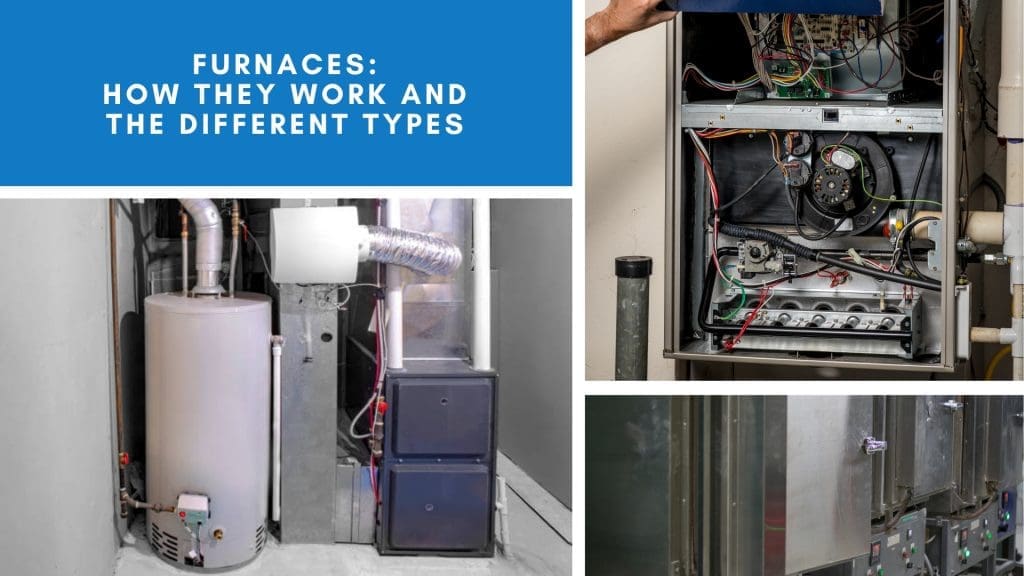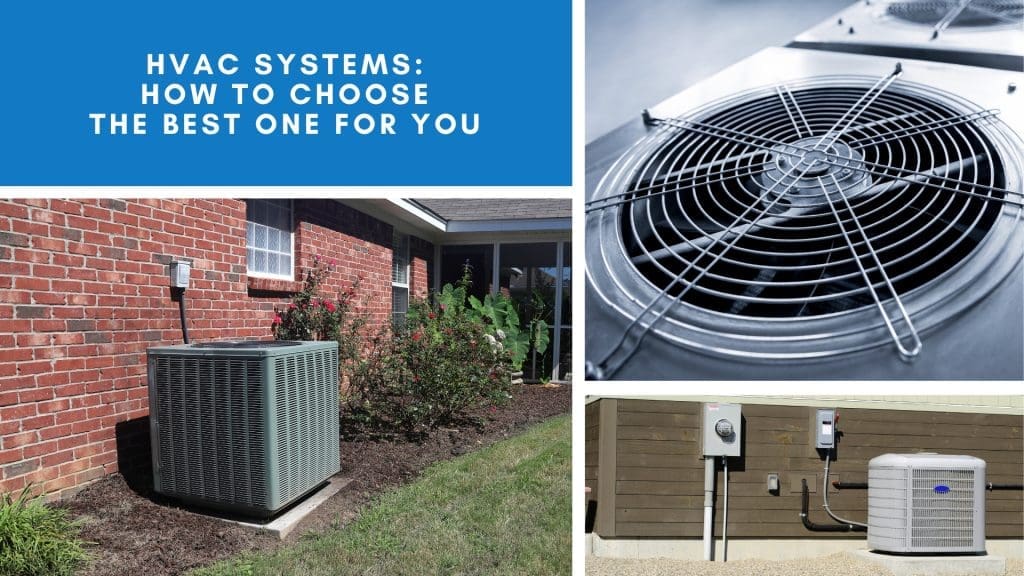When your air conditioner starts blowing hot air, it can be frustrating. Especially during those scorching Los Angeles summers.
You might wonder, “Why does my AC unit blow hot air?” You’re not alone.
Many homeowners face this issue. It can disrupt your comfort and productivity.
Understanding the Common Causes of AC Blowing Hot Air can help. It can save you time and stress.
From thermostat issues to refrigerant leaks, several factors could be at play. Each requires a different approach.
Some problems are simple to fix. Others might need a professional touch.
Knowing when to call in the experts is key. It ensures your system runs smoothly.
At LC Heating and Air Conditioning, we’re here to help. We prioritize your comfort and satisfaction.
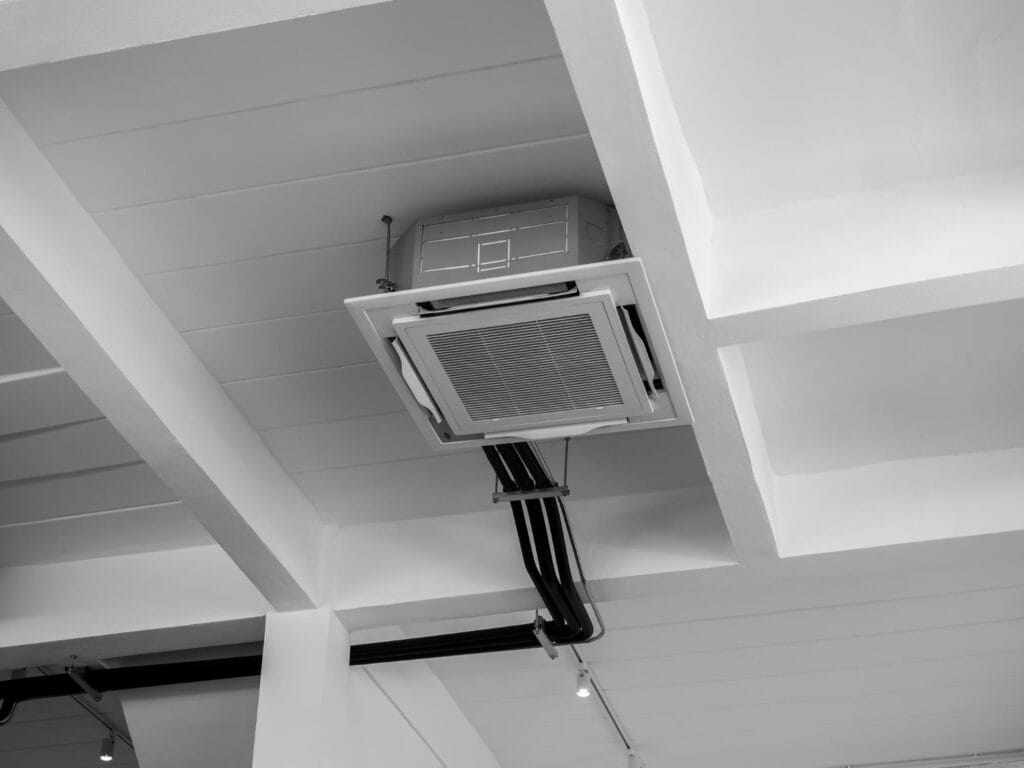
Why Is My Air Conditioner Blowing Hot Air?
When faced with an air conditioner blowing hot air, it’s crucial to identify the cause. Various factors can lead to this issue, each with distinct symptoms. Understanding these can help resolve the problem efficiently.
Start by considering thermostat settings. Someone might have accidentally changed them. Ensure it’s set to “cool” mode and at a temperature lower than the current room temp.
Beyond the thermostat, other causes might require closer inspection. Here’s a quick list of potential culprits:
- Dirty or clogged air filters
- Low or leaking refrigerant
- Electrical issues or a tripped breaker
- Dirty condenser coils
- Faulty compressor
At times, more than one factor could be contributing. An accurate diagnosis is essential. If you’re still unsure or uncomfortable checking these, it’s wise to contact a professional. Our team at LC Heating and Air Conditioning can quickly help identify and fix the problem, restoring comfort to your home.
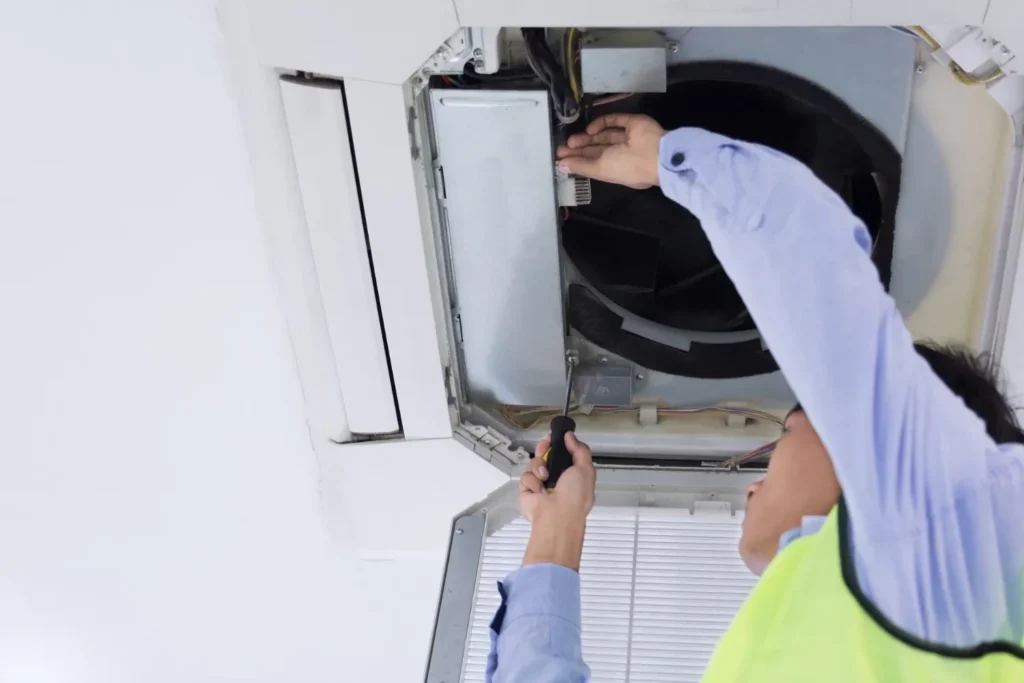
Thermostat Issues: The First Place to Check
The thermostat is often overlooked but essential in climate control. Start troubleshooting by checking its settings. If set incorrectly, your AC might blow hot air.
Ensure it’s set to “cool” and not “heat” or “fan.” Also, make sure the temperature is lower than the room’s current temperature. A simple mix-up can cause a lot of discomfort.
Batteries can be a culprit too. If your thermostat uses batteries, check if they need replacement. Low power can lead to incorrect readings or malfunction.
It’s also possible the thermostat itself is faulty. Look for signs such as a blank or flickering display. Here’s a quick checklist for thermostat issues:
- Check mode setting (cool/heat)
- Verify the temperature setting
- Inspect and replace batteries
- Look for display issues
Identifying and fixing these small issues may solve your problem without needing professional help. If not resolved, the problem might lie deeper within the system.
Dirty or Clogged Air Filters
Dirty air filters are a common, yet often overlooked, issue affecting AC performance. When the filters become clogged, airflow is restricted.
Reduced airflow can cause your AC to blow warm or hot air, leaving you uncomfortable. Regular maintenance is key to preventing this problem.
Every month, inspect your air filters for dirt and debris. Doing so can improve air quality and keep your system efficient. Filters should be cleaned or replaced regularly, depending on your system’s needs.
Ignoring dirty filters can lead to bigger issues over time. Here’s a quick list of benefits of maintaining clean air filters:
- Improved air quality
- Better airflow and efficiency
- Longer system lifespan
- Lower energy bills
In essence, clean filters help ensure your AC runs smoothly, improving comfort and efficiency throughout your home.
Refrigerant Leaks or Low Refrigerant Levels
Refrigerant is vital for your AC’s cooling process. Without it, your unit can’t cool the air effectively. When refrigerant levels are low, your AC might blow warm air. It’s not always easy to detect a refrigerant leak, but certain signs can alert you.
One sign is a hissing or bubbling noise coming from your unit. Ice formation on refrigerant lines is another indicator. Warm air output is an obvious sign and one not to be overlooked. Refrigerant issues can sometimes lead to compressor damage if ignored.
Detecting and fixing leaks requires professional expertise. If you suspect a leak, it’s best to call a technician. Here’s why addressing refrigerant issues promptly is crucial:
- Prevents further system damage
- Ensures consistent cooling performance
- Extends your AC’s lifespan
- Helps maintain energy efficiency
Keeping refrigerant levels in check is essential for a comfortable and efficient air conditioning system.
Electrical Problems and Tripped Breakers
Electrical issues can be a common culprit when your AC blows warm air. A tripped breaker is often the first sign. It may sound minor, but it can disrupt the entire cooling process.
Faulty wiring or loose connections can lead to circuit breaker trips. Always ensure to check your electrical panel if your unit isn’t cooling. Over time, electrical components can wear out or become damaged, leading to inefficiency.
Ignoring electrical issues can escalate into bigger problems. Electrical problems might not only impact performance but could pose safety risks, too. Address them quickly by consulting a qualified technician. Key electrical considerations include:
- Checking for tripped breakers
- Ensuring wiring is secure
- Inspecting electrical panels regularly
Ensuring your electrical systems are in top shape will keep your AC running efficiently and safely.
Dirty or Blocked Condenser Coils
Condenser coils play a vital role in releasing heat from your home. However, dirt and debris can accumulate over time. This build-up impairs the coils’ functionality, leading to warm air instead of cool.
When coils get dirty, your AC works harder to cool your home. This not only affects efficiency but also increases energy bills. Regular maintenance can prevent these issues from spiraling out of control.
It’s essential to monitor and clean these coils to maintain optimal performance. A few steps to ensure clear condenser coils include:
- Scheduling routine cleanings
- Inspecting coils for dirt and debris
- Keeping the surrounding area clear
By maintaining clean condenser coils, your AC will run more smoothly, providing comfort during those hot Los Angeles summers.
Compressor Problems
The compressor is the heart of your air conditioning system. It pumps refrigerant through the system to ensure cooling. If it malfunctions, you may notice your AC blowing hot air.
Compressor problems can arise from wear and tear or lack of maintenance. When the compressor fails, it affects the entire system’s ability to cool your home. Symptoms include strange noises or frequent cycling on and off.
Addressing compressor issues promptly is critical to prevent further damage. Consider these steps to manage potential compressor problems:
- Regularly schedule maintenance checks
- Listen for unusual noises
- Consult a professional if the issue persists
By staying vigilant, you can ensure your compressor performs optimally, keeping your home comfortable year-round.
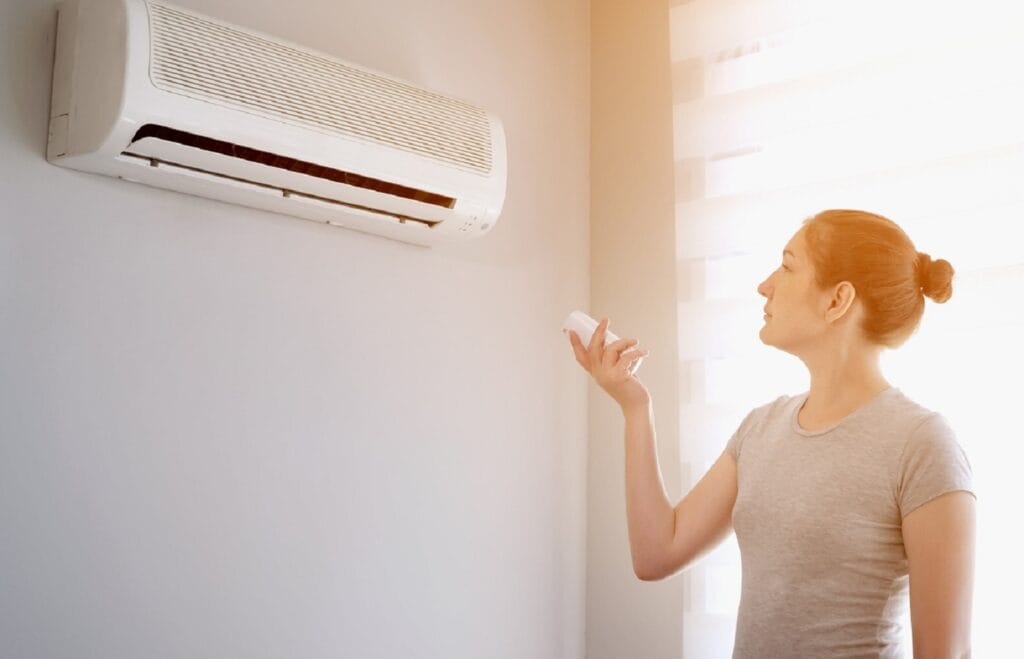
Ductwork Leaks or Blockages
Ductwork is essential for delivering cool air throughout your home. If there are leaks or blockages, your AC might blow hot air. Air leaks in ducts lead to energy loss and uneven cooling.
Blocked ducts restrict airflow, affecting the system’s efficiency. Common causes of blockages include dust, debris, or even pests. Regular inspections help spot and resolve these issues quickly.
Addressing ductwork problems involves a few simple checks:
- Inspect duct joints for leaks
- Clear vents and ducts from obstructions
- Schedule routine professional inspections
By maintaining your ductwork, you ensure that cool air efficiently circulates, making your home a pleasant refuge against the elements.
Other Common Causes: Aging System, Fan Issues, and More
As your air conditioning system ages, wear and tear can lead to inefficiencies. An older AC might struggle to maintain the desired temperature, blowing warm air. Regular maintenance can mitigate some of these aging-related issues.
Fan problems can also cause your AC to blow hot air. A faulty fan means inadequate airflow across the cooling coils, leading to warm air output.
Other potential causes to consider are:
- Faulty thermostatic expansion valve
- Incorrect AC size for your space
- Damaged insulation around ducts
By staying vigilant about these issues and performing regular checks, you can help ensure your AC provides reliable cooling. If you’re unsure about addressing them yourself, consulting a professional can provide peace of mind and ensure quality service.
Common Causes of AC Blowing Hot Air: How to Fix an AC Blowing Hot Air – DIY Tips and When to Call a Pro
Dealing with an air conditioner blowing hot air can be frustrating, especially during a heatwave. Luckily, there are some simple steps you can take to troubleshoot the issue yourself before calling in a pro.
Start by checking your thermostat. Ensure it’s set to “cool” and that the temperature is set lower than your room’s current temperature. Sometimes, a simple adjustment can solve the problem.
Next, inspect and replace or clean the air filter if it’s dirty. A clean filter can greatly improve airflow and efficiency. Additionally, check for any tripped breakers in the electrical panel to ensure your AC is getting power.
If these tips don’t resolve your issue, it might be time to call a professional. Here are signs that it’s time to call us at LC Heating and Air Conditioning:
- Strange noises or smells
- Persistent warm air
- Frequent cycling on and off
Getting a professional assessment can prevent further damage and restore comfort to your home quickly and efficiently. Plus, it gives you the peace of mind that your AC is in capable hands.
Preventing Future AC Problems: Maintenance Tips
Regular maintenance is key to keeping your AC running smoothly. A little effort can go a long way in preventing problems before they start.
Consider these maintenance tips to keep your system in top shape:
- Schedule annual professional inspections to catch early issues.
- Clean or replace air filters every 1-3 months.
- Clear debris and dust from around the outdoor unit.
- Check for refrigerant leaks to maintain efficiency.
By following these simple maintenance steps, you can extend the life of your AC and ensure it operates efficiently, saving you both stress and money in the long run. Regular care keeps your home comfortable and your mind at ease.
When to Call LC Heating and Air Conditioning
Sometimes, DIY efforts aren’t enough to fix your AC. That’s when LC Heating and Air Conditioning comes in.
If you’re facing persistent issues or new ones keep emerging, it’s time to call us. Here’s when you should reach out:
- Persistent hot air, even after checking common causes
- Unusual noises or leaks you can’t identify
- Inconsistent temperatures throughout your home
Getting professional help ensures accurate diagnosis and reliable solutions. Don’t hesitate to contact us to restore comfort to your home. With LC Heating and Air Conditioning, you’re in trusted hands, and we’ll have your system working perfectly in no time.

